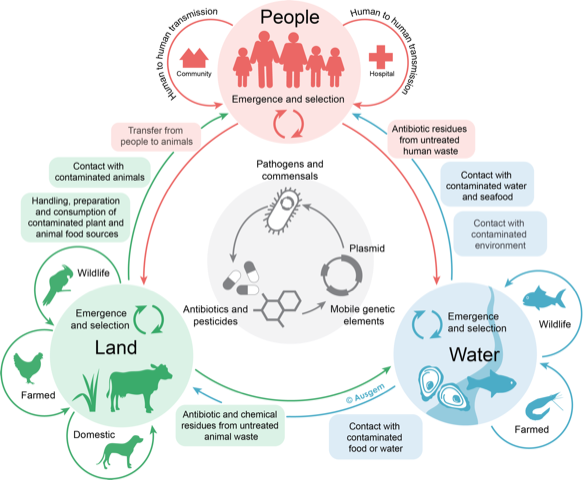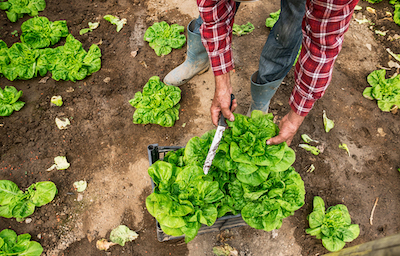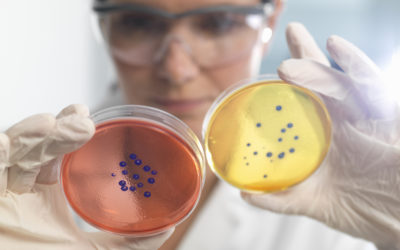Can we stop the rise of superbugs?
Here’s how we’re tackling one of the biggest threats to global health today
Tackling antimicrobial resistance with OUTBREAK
OUTBREAK (One Health Understanding Through Bacterial Resistance to Antibiotics Knowledge) is a research-based network taking a One Health approach – integrating data from humans, animals, plants and the environment – to address the location- and person-specific threat of an antibiotic resistant infection now and for generations to come.
OUTBREAK network members use a multi-disciplinary approach and connect experts from a range of organisations who together are uniquely skilled to generate, collate and deliver trusted and scientifically defensible insights on drug resistance.
The threat of antimicrobial resistance
Imagine a world without antibiotics – a paper cut could kill you, and routine surgeries, minor health conditions and even childbirth would carry a high risk of complications and death.
This world was a grim reality less than 100 years ago, before the advent of antibiotics. Unfortunately, it’s one we’re set to face again with the rise of antimicrobial resistance (AMR).
AMR happens when bacteria become resistant to the antibiotics used to kill them. These bacteria, often called ‘superbugs’, can spread and cause life-threatening infections that are difficult to treat. Left unchecked, superbugs could rob us of the ability to treat infections and support lifesaving surgeries and therapies.

Health
Antibiotic-resistant infections result in longer hospital stays, higher medical costs and increased mortality. Without intervention, it is estimated that AMR will be responsible for 10 million deaths annually by 2050. [1]

Discovering a solution through One Health
Until now, many AMR studies have focussed on antimicrobial resistance in human health. This has left significant gaps in our understanding, because antibiotic-resistant germs are also found in animals, food, water, soil and air.
That’s why OUTBREAK uses a One Health approach. This means that, as well as people, we will look at how animals, plants and the environment contribute to antimicrobial resistance. This will help us to intervene in ways that will have the greatest positive impact on our health and economy.

A dedicated team of AMR researchers
The OUTBREAK newsroom
We can’t hide from AMR: experts explain why
“It’s everywhere”. In one sentence, OUTBREAK co-founder and managing director A/Prof Branwen Morgan highlighted a key reason that tackling antimicrobial resistance (AMR) is so complex. Joining Caroline Duell, Andrew Bowskill and OUTBREAK’s Prof Antoine van Oijen for...
New research reveals Australia’s multi-billion dollar superbug crisis
One of the world’s most common infections will cost Australia more than $1 billion a year within the next decade, if nothing is done to stop the rise of antibiotic resistant bacteria (superbugs). Analysis by national consortium, OUTBREAK, highlights how urinary tract...
Experts say real-time, location-based data is key to success of superbug solutions
Australian researchers are calling for more investment in finding out when, where and how current antibiotic treatments are working, as drug-resistant bacteria (superbugs) continue to spread globally. With governments and industry uniting to incentivise the...
Contact us
- [1] Tackling drug-resistant infections globally: Final report and recommendations. The review on antimicrobial resistance; London: HM Government and the Wellcome Trust; 2016.
- [2] Tackling drug-resistant infections globally: Final report and recommendations. The review on antimicrobial resistance. London: HM Government and the Wellcome Trust; 2016.
- [3] Drug-resistant infections: a threat to our economic future. Washington, D.C.: World Bank Group; 2016.
- [4] Drug-resistant infections: a threat to our economic future. Washington, D.C.: World Bank Group; 2016.
- [5] https://www.worldbank.org/en/topic/health/publication/drug-resistant-infections-a-threat-to-our-economic-future




